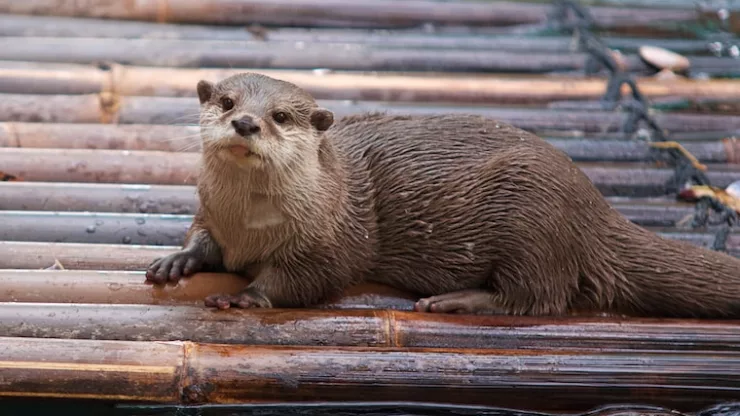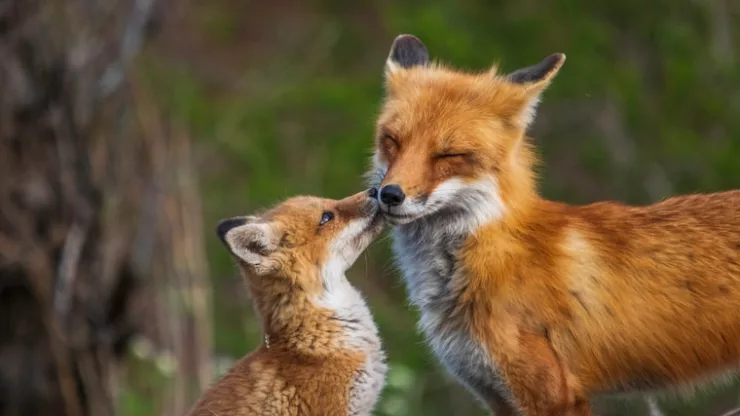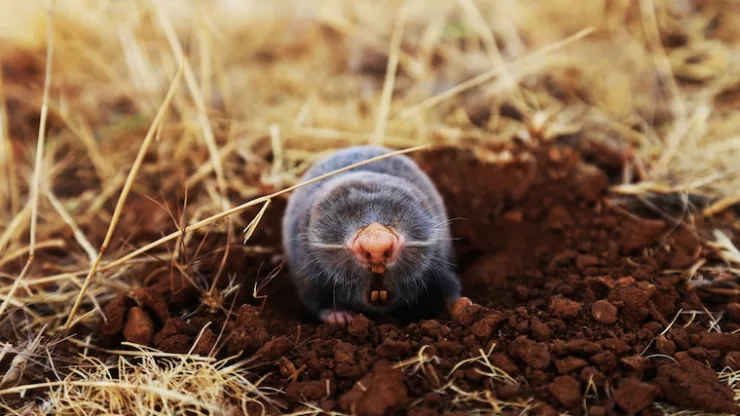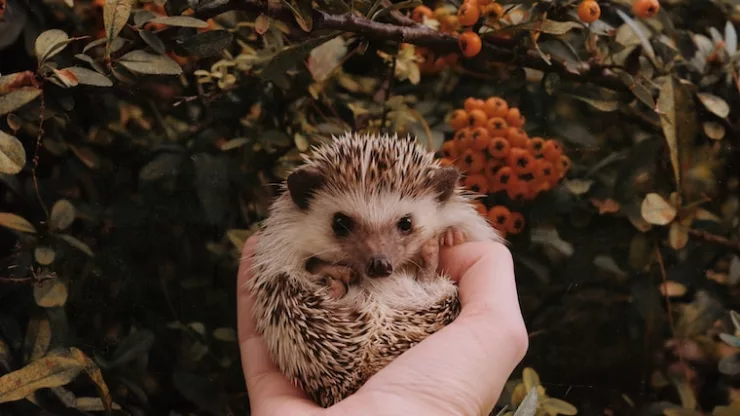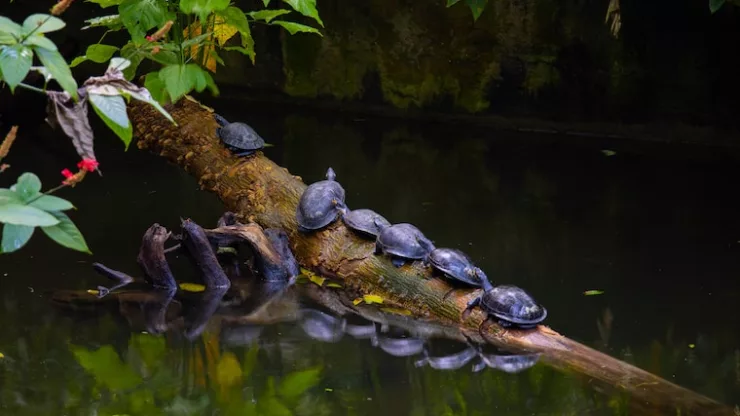Otters are one of nature’s most fascinating creatures. These playful mammals are known for their love of water, their thick fur, and their adorable faces.
But what do they eat, especially in urban environments?
In this article, we will explore the feasting habits of otters and how they have adapted to their urban surroundings.
Jump to Section
Feasting Otters: Inside Their Urban Fish Diet
Introduction
Otters have a diverse diet, but perhaps their most popular food source is fish.
Fish is a rich source of protein, and otters need a lot of it to maintain their high metabolism and active lifestyles.
Otters are also excellent hunters, with a variety of techniques they use to catch their prey.
In this article, we will explore how otters find and catch fish in urban environments, what types of fish they eat, and the benefits and challenges of their fish diet.
The Urban Otter’s Fish Diet
How otters find fish in the city
Otters are incredibly adaptable creatures, and they have learned to find fish in urban environments.
They can be found in rivers, lakes, and even in urban canals and harbors.
Otters are also opportunistic feeders, meaning they will eat whatever is available to them.
In urban areas, this can mean raiding backyard ponds, fishing in man-made canals, or even scavenging from fishermen’s catches.
Types of fish otters consume
Otters have a varied diet, but they tend to prefer fish that are easy to catch and provide a lot of nutrition.
Some of the most common fish that otters eat include:
- Salmon
- Trout
- Catfish
- Perch
- Carp
- Eels
The impact of urbanization on otter’s diet
Urbanization has had both positive and negative impacts on otters’ diets.
On the one hand, otters have learned to adapt to new environments and find food sources that were not available to them before.
On the other hand, urbanization has also led to pollution in many waterways, which can make it difficult for otters to find clean, healthy fish to eat.
Otter’s Hunting Techniques
The hunting process of otters
Otters are excellent hunters and have a variety of techniques they use to catch fish. Some of these techniques include:
- Diving: Otters are superb swimmers and can hold their breath for several minutes. They use this skill to dive deep underwater to catch fish.
- Ambush: Otters will often wait patiently near the edge of the water, waiting for fish to come close enough to catch.
- Chasing: Otters are fast and agile swimmers, and they will often chase fish through the water, catching them with their sharp teeth.
The role of their anatomy in hunting
Otters have several adaptations that make them excellent hunters.
For example, their thick fur keeps them warm in cold water, while their webbed feet and powerful tails make them fast and maneuverable swimmers.
Their sharp teeth and strong jaws allow them to catch and hold onto their prey, while their excellent eyesight and sense of smell help them locate fish in the water.
Differences between wild and urban otters’ hunting techniques
Urban otters have had to adapt their hunting techniques to new environments. For example, they may have to hunt in shallower water or in man-made canals and ponds.
They may also have to compete with other predators, such as raccoons and birds, for food.
The Benefits of Otter’s Fish Diet
The nutritional value of fish for otters
Fish is an excellent source of nutrition for otters. It is high in protein, which otters need to maintain their active lifestyles.
Fish is also rich in vitamins and minerals, such as vitamin D and calcium, which are important for bone health.
The impact of fish consumption on otter’s health
A healthy diet is essential for otters to thrive.
Fish consumption can help otters maintain a healthy weight, grow strong bones and muscles, and fight off disease and infection.
The importance of otters in maintaining a healthy ecosystem
Otters play an important role in maintaining a healthy ecosystem. By eating fish, they help control populations of smaller fish, which can help prevent overfishing.
Otters also help to keep waterways clean by eating dead fish and other aquatic animals.
The Challenges of Urban Otter’s Fish Diet
The risks of consuming contaminated fish
One of the biggest challenges for urban otters is the risk of consuming contaminated fish.
Pollution from industry and agriculture can lead to high levels of toxins in the water, which can be harmful to otters and other wildlife.
The impact of pollution on otter’s health
Pollution can have a significant impact on otters’ health. It can lead to reproductive problems, weakened immune systems, and other health issues.
In extreme cases, pollution can even lead to death.
The role of humans in mitigating these challenges
Humans can play an important role in helping to mitigate the challenges facing urban otters.
By reducing pollution and protecting waterways, we can help to ensure that otters have access to clean, healthy fish to eat. Conservation efforts can also help to protect otters and their food sources.
In Conclusion: Otters Need Our Help
Otters are fascinating creatures that have adapted to life in urban environments.
Their fish diet is essential for their health and well-being, but it is also facing many challenges.
By understanding the challenges facing otters and taking steps to mitigate them, we can help to protect these amazing animals and ensure that they continue to thrive in our cities and waterways.
FAQ
What other food sources do otters eat besides fish?
Otters have a varied diet that includes crustaceans, mollusks, and other aquatic animals. They have even been known to eat small mammals, such as muskrats and rabbits.
Are otters endangered?
Several species of otters are considered endangered or threatened due to habitat loss, pollution, and other threats.
Conservation efforts are underway to protect these animals and their habitats.
Can otters be kept as pets?
No, otters are wild animals and should not be kept as pets.
In many places, it is illegal to own an otter without a special license.
Additionally, otters require specialized care and a habitat that is difficult to replicate in a home environment.
I’m a nature enthusiast and creator of Metro Wilds and have spent years exploring the great outdoors.
With a passion for environmental conservation and sustainability, I have dedicated my career to writing about the beauty and wonders of nature, as well as the threats facing our planet.
Contact me at [email protected] for assistance.

